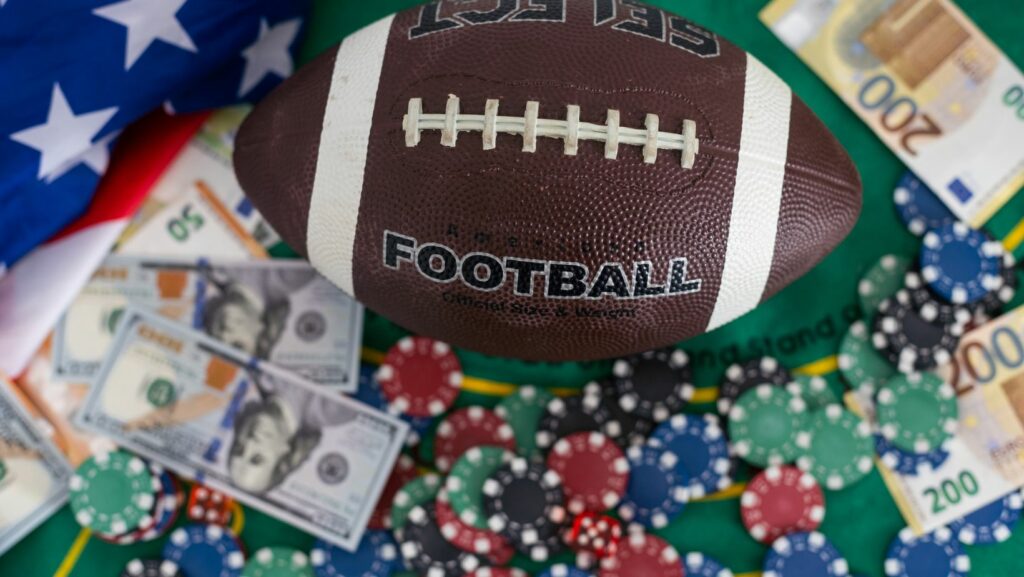During times of financial uncertainty and distress, many people turn to gambling in hopes of landing a windfall to relieve their money troubles. Increased gambling during economic downturns can lead to devastating consequences for individuals, families and communities. Understanding the connections between recessions and gambling habits can lead to better policies and support.
Links Between Recessions and Gambling
Numerous studies have shown increased gambling rates during times of economic uncertainty and downturns. For example, recent UK research found gambling spikes following events causing financial distress, like job losses or falling stock prices. These effects held true across socioeconomic groups.
Likewise during the Great Recession in the late 2000s, surveys found nearly 1⁄5 of Americans gambled more often. States also reported upticks in gambling addiction calls to helplines. Lottery sales surged too, even though incomes dropped.
Why does this happen? Experts cite several likely reasons:
- Desperation – When people lose jobs/incomes, gambling offers hopes of solving money troubles with a big payout. Even if the odds of winning are extremely low, stressed people still chase that chance.
- Escape – Gambling also provides distraction and escapism from gloomy financial realities during recessions. Games and casinos, like SkyCrown online casino, lift moods and alter minds, helping people mentally check out.
- Accessibility – When economic prospects decline locally, legal gambling opportunities often increase. Municipalities and states permit more lotteries, casinos, sports betting and online gaming to generate public revenue during downturns. These provide people more ways to gamble.
Vicious Downward Spiral
While recessions motivate more gambling due to desperation, accessibility and escape, this frequently starts a vicious downward spiral for individuals, families and communities.
As people gamble more to alleviate financial problems, they often instead sink deeper into debt. In the US, over 20% of people seeking help for gambling addictions attribute their conditions to recession-related gambling.
Desperate gambling also devastates households emotionally and economically:
- Bankruptcy – Problem gamblers have high rates of bankruptcy due to accumulating massive debts. This financial wreckage can take years to recover from.
- Substance abuse – Compulsive gambling frequently co-occurs with drug and alcohol addiction, especially during economic lows. These issues tend to exacerbate each other in costly ways.
- Broken relationships – Gambling addictions destroy intimacy and trust between partners, parents and children, as money disappears and lies accumulate. In hard times, households need unity most.
- Crime – With few legitimate opportunities, gambling addictions often lead to criminal acts like fraud, theft or embezzlement to finance playing. People who were law-abiding before recessions fall into legal crises.
At a community level, upticks in gambling during downturns can boost social problems, including:
- Domestic abuse and child neglect – Households under financial stress due to excessive gambling see increased rates of violence. Children also suffer from parental neglect.
- Mental health issues – Compulsive gambling is strongly tied to conditions like depression, anxiety and insomnia during economic crisis periods. These require treatment.
- Financial fraud – As desperation grows, problem gamblers are more likely to commit fraud and scams against individuals and businesses. All pay the price.
Gambling Behavior During Economic Downturns
| Type of Gambling | Change in Activity During Recessions | Key Factors |
| Casino gambling | Increase of ~10% | Desperation drives people to take risks. More local casinos are permitted. |
| Lottery/scratch tickets | Over 30% increase | $1 tickets offer accessible escape. It feels like the best chance to win big. |
| Online gambling | Doubles | Anonymity reduces stigma. 24/7 access from home. |
| Illegal gambling | Grows over 20% | Less oversight due to resource strain. Desire to win back losses. |
| Sports betting | Declines | Less disposable income for wagering. Fewer games occur. |
Effective Responses
Instead of demonizing recessionary gambling spikes, experts say society should respond with pragmatic harm reduction measures, including:
- Public awareness campaigns – Communications educating about gambling addiction risks and where to find help can positively influence community norms and behavior. Targeting messaging to vulnerable groups like unemployed people also makes sense.
- Free counseling and support groups – Ensuring problem gamblers and families have access to free, confidential therapeutic services, both online and in-person, encourages more people to get essential help faster. This pays dividends.
- Gambling activity tracking – Longitudinal tracking of gambling rates and addiction metrics allows authorities to allocate resources effectively to regions and services seeing increased caseloads during economic crisis periods.
 Unemployment rose to 14.7% in April 2020 in the US – the highest since the Great Depression. With the global economy facing recession due to the COVID-19 pandemic, we must apply lessons from past downturns. Being aware of gambling risks now and offering supportive resources will help people cope with financial adversity more constructively.
Unemployment rose to 14.7% in April 2020 in the US – the highest since the Great Depression. With the global economy facing recession due to the COVID-19 pandemic, we must apply lessons from past downturns. Being aware of gambling risks now and offering supportive resources will help people cope with financial adversity more constructively.

